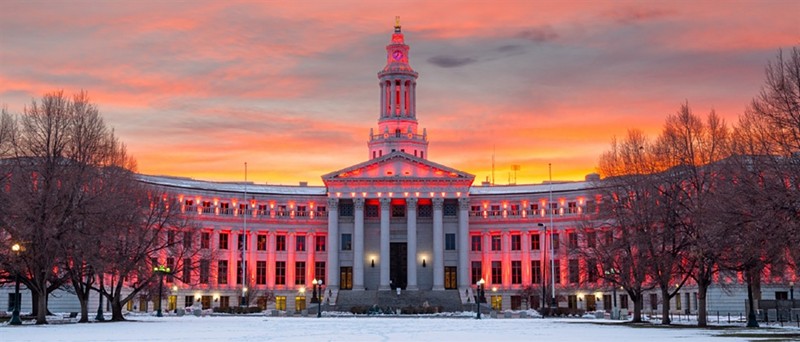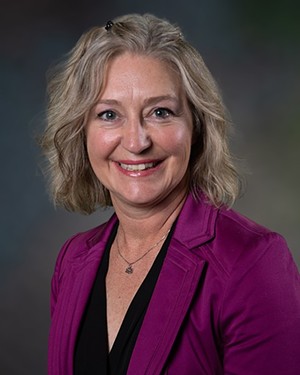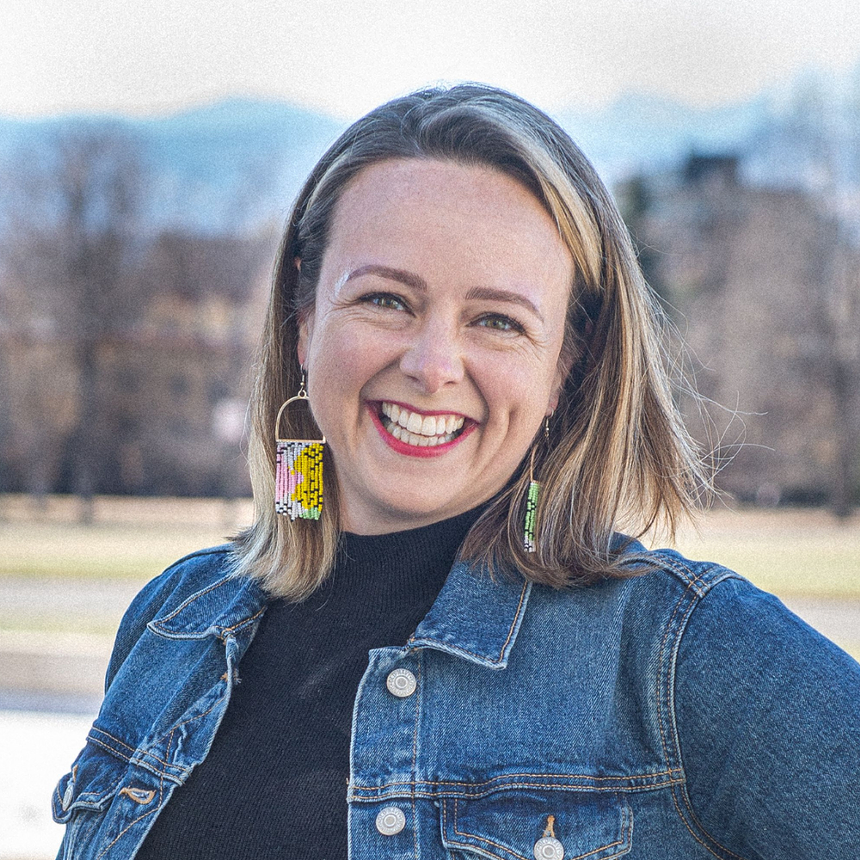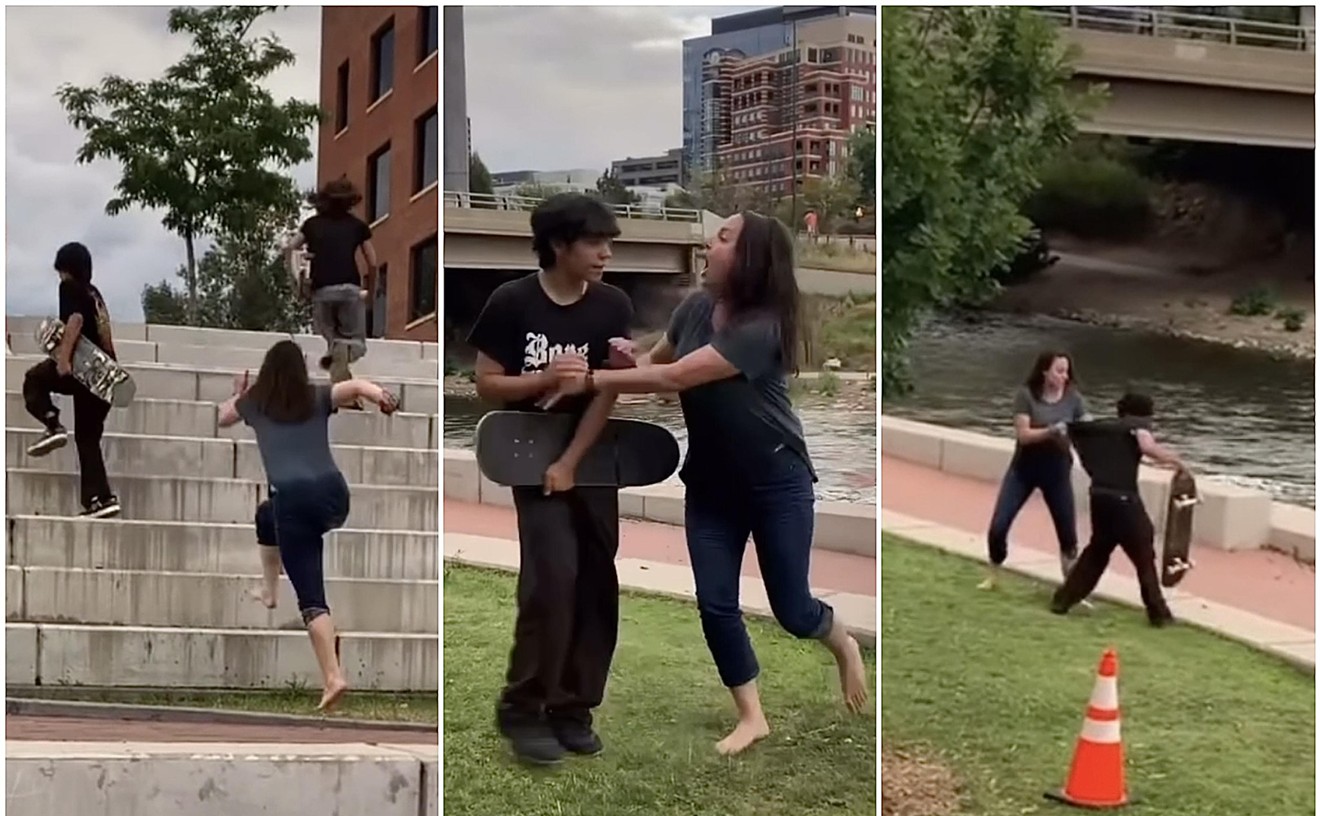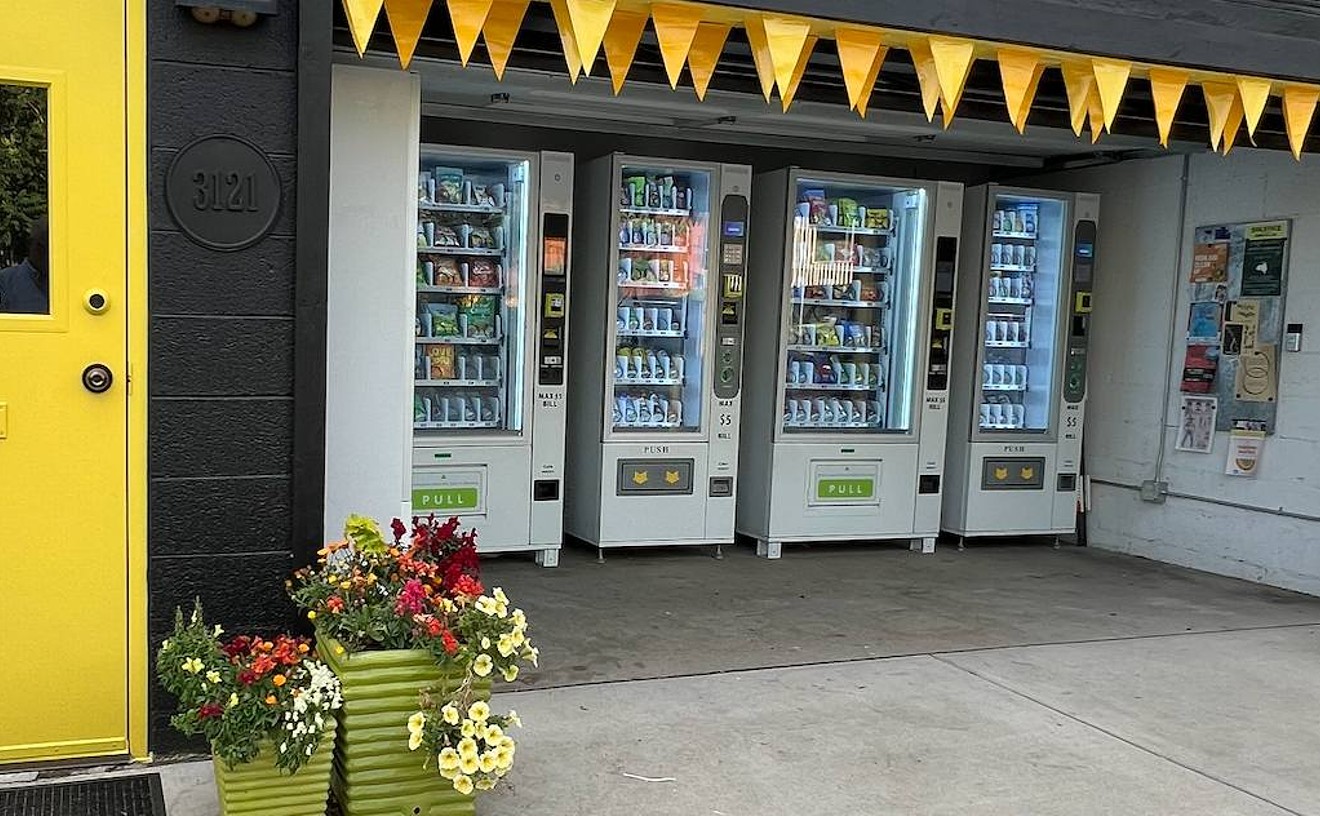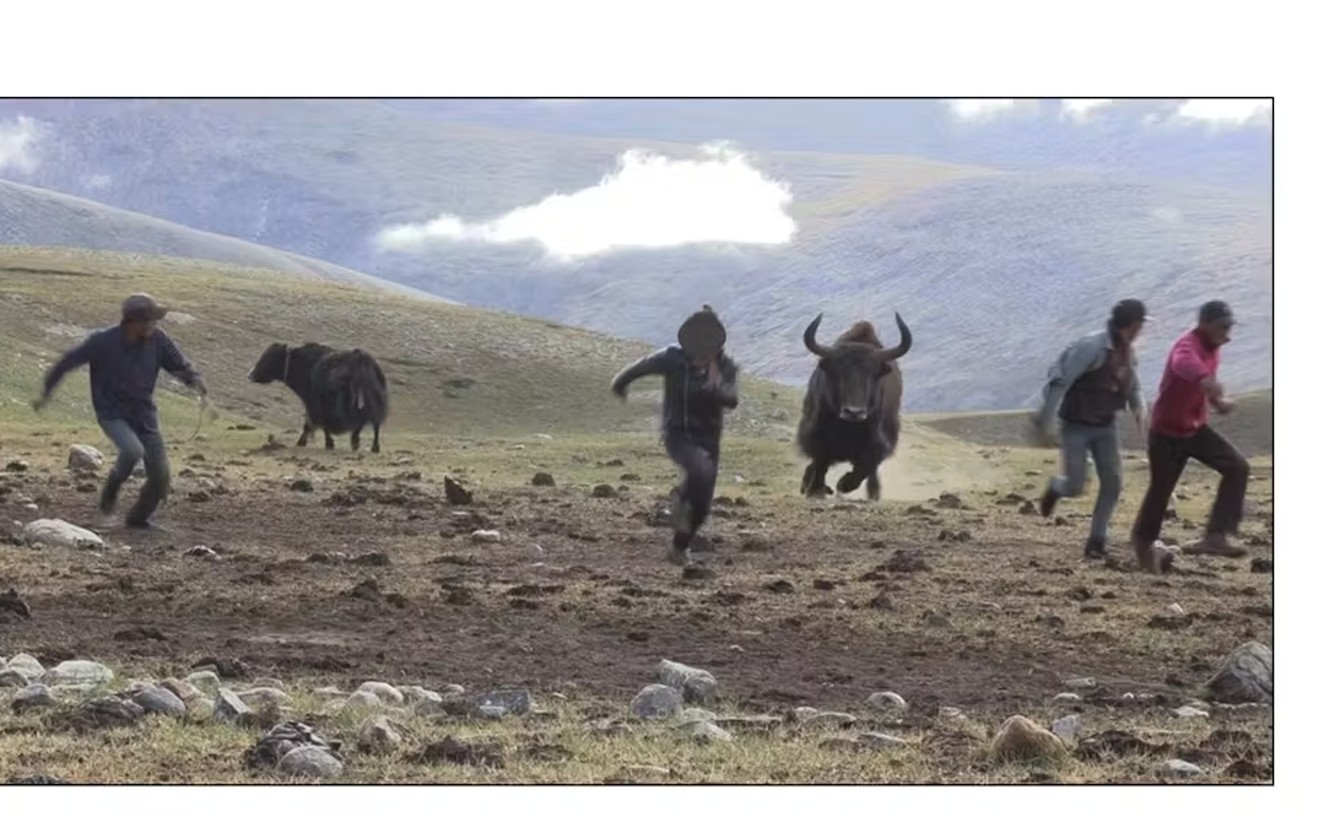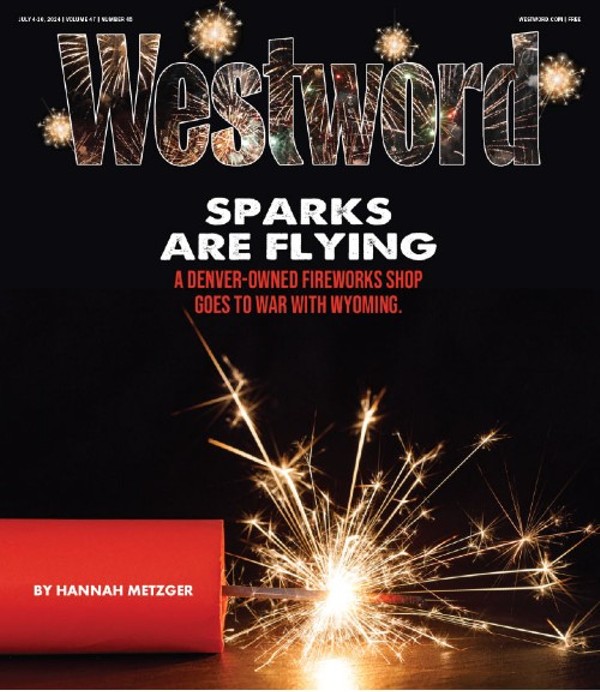In Denver, it’s happened three times over the past six months. In October, advocates for people experiencing homelessness delayed a Monday council meeting for hours. In November, a group of pro-Palestine protesters demanded that all eighty people who had signed up be allowed to speak out against a conference in Denver organized by Jewish National Fund-USA.
“We had so many people, and I was very determined that every person was going to speak and have their opportunity to speak,” says Shannon Hoffman, a former council candidate who helped organize the November action.
Instead, Denver City Council President Jamie Torres adjourned the meeting, pushing back several rezoning hearings to the next week.
“I understand needing to have order and rules,” Hoffman adds. “Sometimes when our world is out of order, we need to do things that are out of order, and I think we should have representatives who are willing to listen to us.”
On February 12, so many people signed up to share their thoughts regarding a proposed ceasefire resolution, repeatedly interrupting after the public-comment time had ended, that council ended up finishing its meeting remotely.
And Denver is not alone. Over the past six months, Lakewood, Wheat Ridge, Durango and other municipalities have dealt with public-comment takeovers during discussions both in person and remote, most focusing on issues thousands of miles from Colorado.
Anti-Semitic Commenters Causing Challenges Across Colorado
The Anti-Defamation League has identified the Goyim Defense League, which works through a group called the City Council Death Squad, as the organizer of many remote attacks. In these cases, people from across the country target councils with hateful speech, knowing they are protected by the First Amendment.When a Lakewood City Council meeting was attacked in February, Mayor Wendi Strom called for a recess, then announced that remote commenters could use the LakewoodSpeaks website but wouldn’t be allowed to speak anymore. Strom has held to that policy ever since.
“It was disgusting to hear,” she says. “It's disappointing that we even have to have this conversation. The hate that is behind some of this — there's no place for that.” However, she acknowledges that unless there is a direct threat, it is still protected speech, and says the city is considering adding remote comment back to its agenda.
She’s disappointed that Lakewood has had to consider limiting remote public comment at all, especially because those doing the damage don’t even live in the city.
“I hate the idea of removing the ability to call in, because think about the single mom that has an issue that she really wants to call in to voice to the city council,” Strom says. “She gets home from what’s maybe job number two, making dinner for the kids, putting the kids down. Us being able to offer this option to call in allows her to still be able to make her voice heard even though she cannot come here in chambers.”
In Castle Rock, the city eliminated remote public comment in anticipation of an anti-semitic attack. According to Mayor Jason Gray, no-remote comment was the policy before COVID, so it made sense to return to it once anti-semitic speech at council meetings became a problem across the country.
“You can still email, you can still call, you can leave me a message or you can come in person,” Gray says. “If someone wants to yell and scream at me, that's fine. But just do it in person so I can see your face. You can email me that kind of stuff, but I just don't think it belongs in a public venue. I just don't.”
Some citizens say they understand the change, he says, and others worry they will now have less of a voice.
The Colorado Municipal League has identified remote public comment as a hot topic for councils across the state.
“The main thrust of the discussion that municipal officials may need to consider is whether remote public comment is a useful tool for the community, or does it distract from public business — and does the body want meetings to be used this way,” says CML executive director Kevin Bommer.
How Does Public Comment Work Right Now in Denver?
Denver isn't currently considering limiting public comment. Each Monday, there is a recess for thirty minutes of public comment at 5 p.m., between council’s sessions that start at 3:30 and 5:30 p.m. People sign up beforehand and can comment in person or online.Those procedures exist because of efforts back in 2016 and 2020 by Councilman Paul Kashmann, who pushed for council to hear comments every week and have them televised, as the rest of council’s meetings were. Previously, public comment was only allowed once a month and wasn’t televised.
“It's fair to give the public an opportunity to address their elected officials as a body,” Kashmann says. “We've got thirteen good people on city council, is my feeling. We've got a whole bunch of good folks working in the administration. But we've got about 750,000 people living in the City and County of Denver, and by not giving them a chance to speak, I think we're probably missing out on some good ideas.”
In 2022, council changed its rules to prioritize those who have never spoken at a meeting. It’s currently testing out a pilot program in which those under eighteen get priority at the first meeting of every month, too.
Every Denver councilmember with whom Westword spoke emphasized the value of public comment; several pointed out that open public comment doesn’t exist at other levels of government.
“The mayor doesn't have public comment,” says Councilwoman Amanda Sandoval. “At the state, they don't have open public comment; you have to go testify on a bill. So I think it's a really important tool for people just to come and be able to address their elected officials consistently.”
But some people don't think the city's public comment setup works. Hoffman, for example, points out that scheduling public comment between meetings means people sometimes sign up to comment on a bill or resolution that's already settled by the time public comment starts.
Additionally, the setup does not allow discussion.
“I absolutely understand their concern,” Sandoval says of the people who want to talk about Gaza. “It's hard to have those conversations when you're sitting there and hearing from people who have lost their families and not be able to comment back. Because that's part of the way our public comment is structured: It's not a dialogue.”
Sandoval says she would like to respond, giving people condolences when they mention the suffering of their families, but she also knows that if council were to respond in real time to every comment, meetings would last well into the night.
“If you see a pattern, maybe you should adjust the situation,” Hoffman counters.
The Good and Bad of Public Comment
For Flor Alvidrez, a new Denver councilmember, public comment represents a chance to hear what is happening in other districts.“When my district was getting the micro-community and people came to speak at city council, it really helped my colleagues understand where I was coming from in a way that I couldn't communicate to them," she says.
Councilmember Darrell Watson says he's sometimes changed a vote based on public comment; after hearing one comment, he voted against a $5 million study on widening Peña Boulevard.
Kashmann gives a lot of credit to those who advocate regularly for Denver’s unhoused community. “It's not infrequent that we'll be approaching an issue on council and you think that you've got your mind made up, and then someone will express an opinion in a different way than you've heard it before and it plays a role in the decision-making process,” he says.
Alvidrez wasn’t aware of public comment before she was elected, but now tells everyone she talks with to comment.
“I think diversity of thought is important,” she says. “That's the hard thing also about public comment when we've had these takeovers; it's just one group saying the same thing over and over. It's good to see the number of people that support something. Also, the question is like, is this relevant to city council?”
And it can be hard for Alvidrez to tell if it’s just the most passionate people coming out to comment or if these groups are truly representative.
“Just because we have one person who is super angry about this one thing or even 100 people that are super angry about one thing, it doesn't mean that the entire city is all on the same side,” Alvidrez says.
However, city council meetings aren’t intended to be open forums. There's also important business to attend to, such as zoning hearings and ordinance votes that could be delayed or neglected if public comment continues to be disruptive.
“Public comment has the space to actually elevate voices,” says Watson. “As councilmembers, we also need to ensure that our public-comment process allows us time to do the work of the people."
Sandoval calls it a balancing act.
“I don't know what tool there is to amend any of our public-comment rules that gets to the heart of what we're doing,” she says. “Some weeks we don't have anybody who signs up. Sometimes we have ten minutes' worth of public comment, and some weeks we have more people who want to speak.”
Could Public Comment Get Better in Denver?
“If you don't want a situation where it has to be this push and pull, it seems to me, why wouldn't you call for a special hearing?” Hoffman says. “Maybe say, ‘Today we're going to reach out to the main organizers or organizations and offer to have some kind of community listening session.’"Alvidrez agrees, saying she plans to suggest more courtesy public hearings on items council will be voting on. She also wants to make people feel safer when they make public comment, perhaps by emphasizing the council’s decorum rules.
"What I hear from constituents is like, ‘I don't feel comfortable or safe always coming to voice my opinion,’” she says.
It's not that council wants to avoid tough topics, Watson emphasizes; it just wants to have effective conversations.
“There's not a councilmember out of the thirteen of us that has not spent our lives having difficult discussions,” he says. “Tough discussions are the last thing that we're concerned with. What we are more focused on is making sure that we provide access to everyone.”
Kashmann is open to adding more time for general comment, perhaps going up to 45 minutes or an hour. In general, though, he thinks the rules work, pointing out that in his entire time on council, there have only been a handful of disruptions stemming from public comment.
“I believe we provide an adequate period of time for all sides of an issue to be dealt with, and if the voice is not able to be heard during public comment, there are other avenues to address council representatives,” he says.
If there are changes, Hoffman hopes they will make public comment easier. When takeovers happen, she notes, it’s usually because people haven’t felt listened to.
“You have met with every city councilperson,” she says. “You have sent people to public comment for weeks and weeks. You have gotten people to email city council, and still no action is taking place. So then you escalate the action. ... It's a reflection that people are not being heard.”
Colorado Legislature Could Comment on Comments, Too
The state legislature could soon take on the issue. HB24-1168, or Equal Access to Public Meetings, which was introduced by representatives Meg Froelich and Manny Rutinel and Senator Nick Hinrichsen, would require that public meetings be available through streaming or audio, and guarantee that people be able to access meetings remotely. The bill‘s goal is to provide accessibility for those with disabilities, but it could affect the way public comment works for others, too.Many municipalities already livestream their meetings, like Lakewood. Mayor Strom says the city is examining how it can “thread the needle" and preserve important public comments while not enabling vulgar or hateful speech.
During the Aurora City Council meeting on April 8, councilmember Curtis Gardner will introduce a proposal that would move all public comment to in-person and at the podium; currently, comments can also be made remotely and over the phone. The council meetings are all livestreamed on AuroraTV.org.
Denver livestreams its meetings and provides remote options, and councilmembers say they support maintaining those practices as well as keeping public comment.
“We do not, as councilmembers, have all the truth, all the understanding, all the awareness of everything that's happening,” Watson admits. “We need to hear from community members, and we need to create a space where community members feel encouraged and celebrated to come down and speak their truth to us. That's how we remain enlightened. That's how we remain rooted in community voice.”

